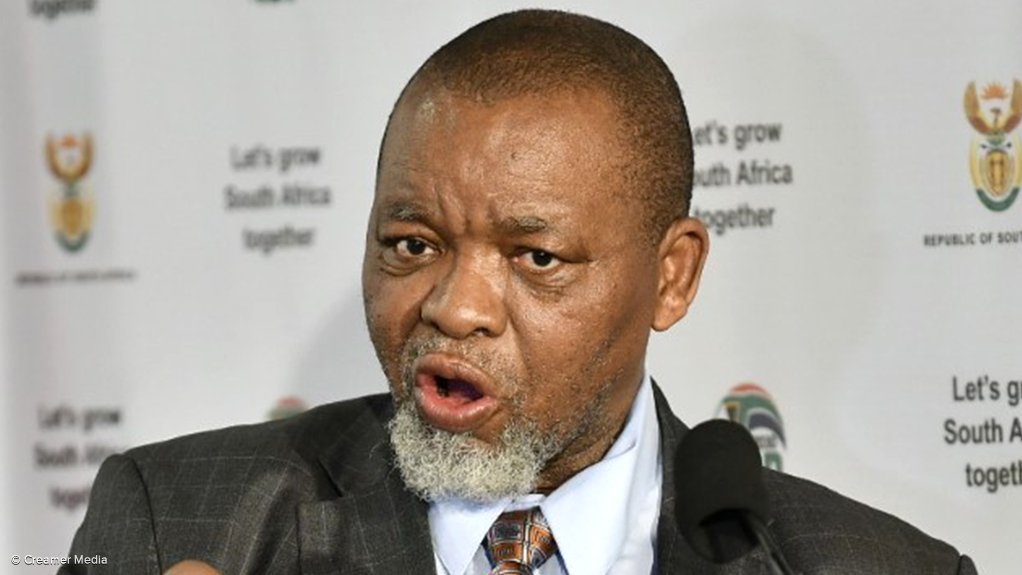The Department of Mineral Resources and Energy (DMRE), working with the State Information Technology Agency, has concluded the process to appoint a service provider for the design, implementation, maintenance and support of an electronic mining licensing system.
This is in line with comments made by Mineral Resources and Energy Minister Gwede Mantashe earlier this month that the announcement of a preferred bidder was "imminent". Mining Weekly reported on January 18 that the Minister had also promised to commit this year to clearing the backlog in processing mining rights applications.
It has identified PMG Consortium – a conglomeration of three companies – as the preferred bidder to provide the mining licensing system, which is commonly referred to as the cadastre.
The three companies are Pacific GeoTech Systems (PGTS), MITS Institute and Gemini GIS and Environmental Services (GGES).
PGTS has more than 23 years’ experience in delivering online enterprise resource management systems in jurisdictions such as British Columbia, New Brunswick, Manitoba, Nova Scotia, Nunavut, Northwest Territories, Ontario and Yukon, in Canada; Colombia; and Greenland.
MITS Institute has more than 13 years’ experience in the provision of business, technology and cyber solutions to private and public sector clients in South Africa.
GGES has more than 13 years’ experience in the provision of unmanned aerial vehicle surveying, mapping, monitoring and inspection services to private and public sector clients in South Africa.
The DMRE says it is confident that the preferred bidder will be able to deliver the required mining licensing system that will heighten transparency in the application and processing of mining rights, permits and licences.
Minerals Council South Africa has welcomed the appointment of a service provider to design, implement and support a mineral rights system to address one of the major hurdles constraining exploration, mine development and growth of the local mining industry.
"The new cadastre will expedite the processing of prospecting and mineral right applications, shortening the adjudication of applications. We can anticipate a near-term positive turnaround in the prospects of the industry through increased investment and future growth of mining and stimulus to the economy.
“We need a globally competitive and world-class system to stimulate the mining sector, attract investment to grow the sector, attract new participants, create wealth for South Africa, and benefit society, especially at a time when there is a global conversation about critical minerals, which South Africa is endowed with," Minerals Council CEO Mzila Mthenjane comments.
The council has estimated the backlog of more than 3 000 prospecting and mining rights to have a pent-up investment value of more than R30-billion, with thousands of jobs that could be created, particularly in rural areas where there is little economic activity.
South Africa has many of the minerals needed for the decarbonisation of economies and new technologies. To play its role in the global critical mineral economy, South Africa must urgently revitalise its exploration sector, the council states.
“This is an inflection point for the South African mining sector and it will underscore why #MiningMatters for all stakeholders and the country,” Mthenjane says.
Edited by: Creamer Media Reporter
EMAIL THIS ARTICLE SAVE THIS ARTICLE
ARTICLE ENQUIRY
To subscribe email subscriptions@creamermedia.co.za or click here
To advertise email advertising@creamermedia.co.za or click here













